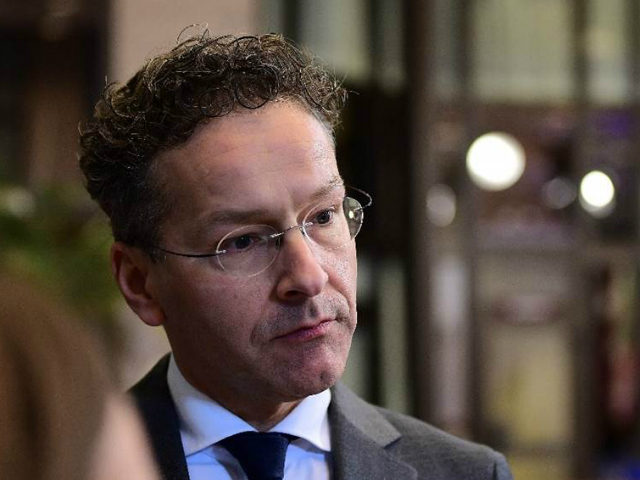(AFP) – Eurogroup chief Jeroen Dijsselbloem has dismissed as “intellectually impossible” the notion that Britain could retain unfettered access to the European single market while also cutting down on EU immigration.
Dijsselbloem also warned on Wednesday that negotiations for Britain’s departure from the EU would take “a lot longer than two years” — the estimated timetable written into the EU treaties.
Dijsselbloem spoke after an interview by Boris Johnson with Czech daily Hospodarske Noviny in which the British foreign minister reportedly said Britain would “probably” have to leave the European customs union but still have “free trade” with EU states.
“He’s saying things that are intellectually impossible, politically unavailable,” Dijsselbloem, who is the Dutch finance minister and head of the eurozone finance ministers group, told the BBC.
Speaking to CNBC on the sidelines of a conference hosted by UBS bank in London, the minister said: “I don’t think he is being realistic and fair to the British electorate on what’s possible.”
At the conference, his spokesman said he told delegates: “Negotiations are hugely complex… They are going to take a lot longer than two years”.
Prime Minister Theresa May addressed parliament in defensive mode on Wednesday, following a leaked report from a consultancy saying the government had no overall plan for Brexit.
“Yes we do have a plan,” she told MPs, but then refused to reveal what it was in any detail, saying this would undermine Britain’s negotiating position.
At the banking conference, Dijsselbloem said Brexit was a “lose-lose situation” for Britain and the EU.
He also said that the British and EU economies would both be in “a worse situation” after Brexit.
– Britons want EU free trade –
Britain voted to leave the European Union in a referendum in June and May has said she will trigger Article 50 — the formal procedure for departure — by the end of March 2017 at the latest.
One of the key factors behind the Brexit vote was the influx of hundreds of thousands of citizens of other EU states into Britain every year to find work.
May has said she wants to cut these numbers while retaining “maximum” access to the EU single market for British firms but EU leaders have ruled this out, saying Britain would have to accept free movement of people.
A survey by NatCen Social Research published on Wednesday found Britons overwhelmingly want to maintain free trade with the European Union after Brexit while controlling EU immigration.
Some 90 percent of respondents said they wanted EU and British companies to continue to be able to trade freely.
But 70 percent said they wanted limits on the number of EU citizens allowed to live and work in Britain, and a similar number wanted the reintroduction of customs checks on goods entering the country.
“The kind of deal that is most likely to prove electorally popular is one that maintains free trade but permits at least some limits on EU migration,” said Professor John Curtice, senior research fellow at NatCen and a respected polling expert.
The survey of 1,391 people was conducted online and on the phone between September 22 and October 24.

COMMENTS
Please let us know if you're having issues with commenting.